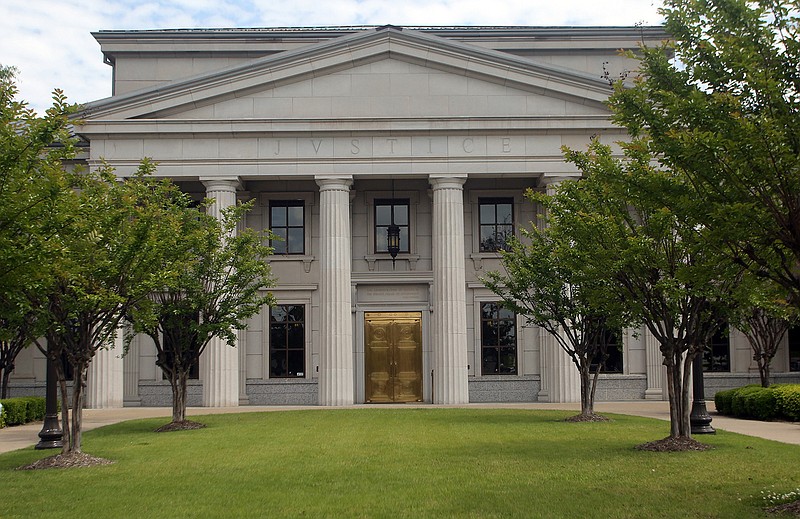FORT SMITH -- The city can keep the almost $750,000 it collected in recycling fees while recyclables were being dumped in the landfill, the Arkansas Supreme Court ruled Thursday.
The decision overturned a Sebastian County Circuit Court ruling the city pay $745,057 in restitution for the fees.
The Supreme Court said Fort Smith used the fee for its intended purpose, and no evidence showed the fee didn't bear a reasonable relationship to the benefits conferred.
"The Fort Smith ordinance set a single fee for the cost of residential collection and disposal of solid waste, recycling, and yard waste. And Fort Smith spent the funds on the collection and disposal of solid waste, recycling, and yard waste," the ruling states.
Sebastian County Circuit Judge Stephen Tabor ruled in August the city misused customer money from the Sanitation Department from July 2015 until May 2017, noting the city purposefully deceived the public about its recycling program.
The city even sent recycling trucks around on trash day to collect the items but took them to the landfill, he said.
"It is disconcerting to see the city dismiss the consequences of its actions on its citizens so cavalierly," Tabor's judgment reads. "It is perhaps what is most concerning about this entire matter because it leads to a concern that the city genuinely believes it has the right to deceive the public when it suits its purposes. A lack of recognition or remorse leads to fears that such behavior may be repeated in the future."
Resident Jennifer Merriott filed the lawsuit against the city, seeking to recover money from its recycling program. She contended the city was guilty of illegal exaction and unjust enrichment because the city charged a roughly $13-a-month fee for recycling but disposed of recyclables in the landfill.
In a court filing June 24, the plaintiffs argued by the city's own estimates over 95% of residential recyclables went to a landfill while the city encouraged residential customers to continue their recycling efforts. The filing said the city didn't inform customers recyclables were being taken to a landfill.
The lawsuit argued since the money was wrongly appropriated, customers deserve compensation for the period when recycling efforts were paused.
"The circuit court's findings that Fort Smith failed to notify the public, deceived citizens and destroyed public trust are indisputable," the Supreme Court ruling states. "But those facts do not make the sanitation fee's relationship to the services less reasonable."
City Administrator Carl Geffken said when he was hired six years ago, one of his main goals was to fix the problem but finding another recycling firm took longer than anticipated.
The city argued in court documents the revenue from recycling fees went toward current and future sanitation expenses, and straining personnel with added work would have led to a higher monthly fee anyway.
Geffken said in an issued statement the City of Fort Smith is thankful for the Supreme Court's decision.
"We were not unjustly enriched nor did we illegally exact funds from our residents," the statement said. "The City tried its best to collect trash and added recycling as an optional service without increasing the fee. Unfortunately the cost to process recycling changed from zero cost per year to almost $150,000 per year resulting in the City's attempt to find a company that would accept our recycling without incurring this additional cost. During this time there as a change in leadership at the City and in the Solid Waste department which resulted in greater and greater amounts of recycling being placed in the landfill, contrary to the expectation of our residents. We apologize for this."
Geffken said since July of 2017, 100% of the recycled materials collect have been brought to the city's recycle vendor. He said the vendor was looking to start a recycling business in Tulsa, but instead decided to locate in Fort Smith.

